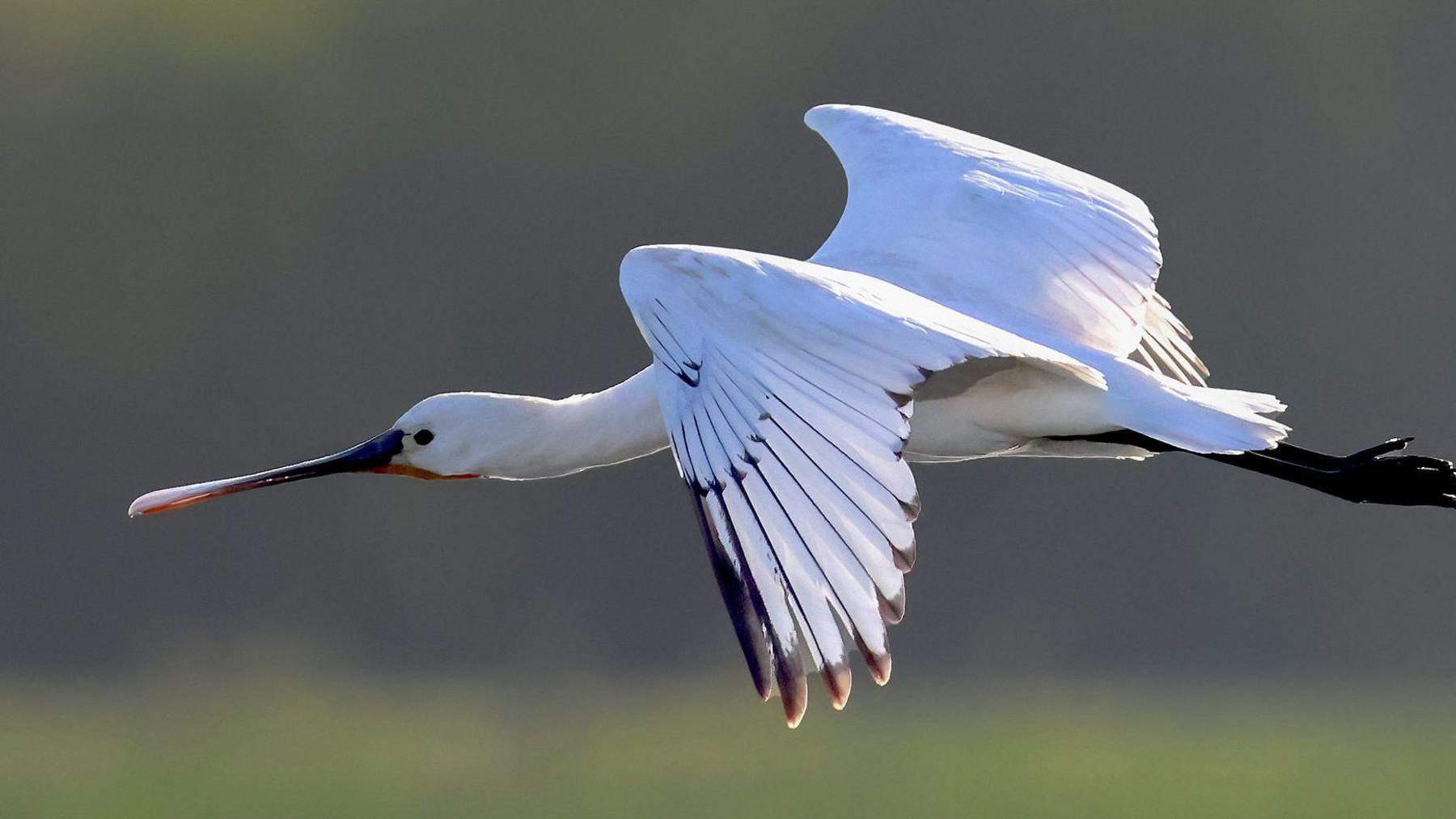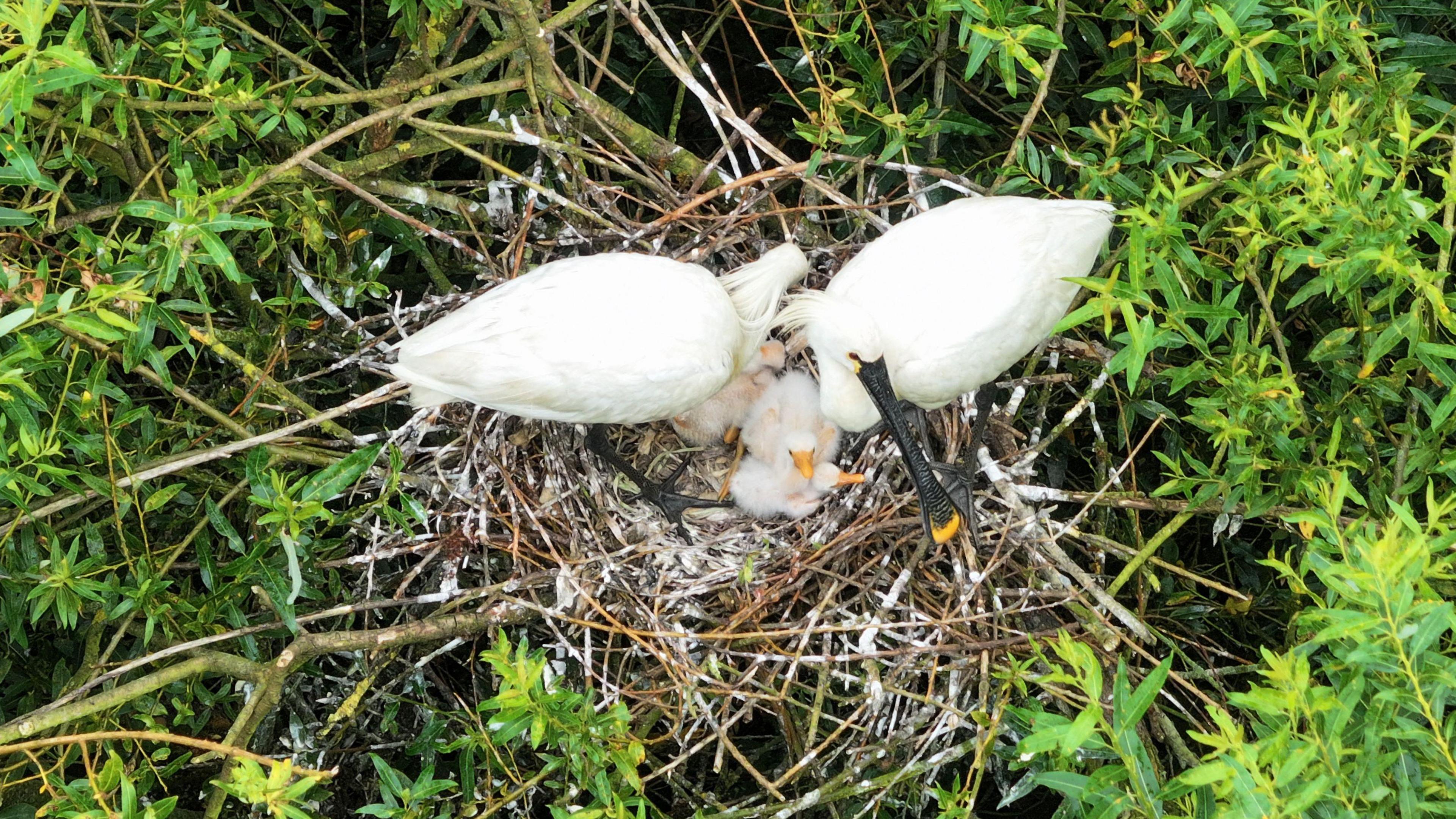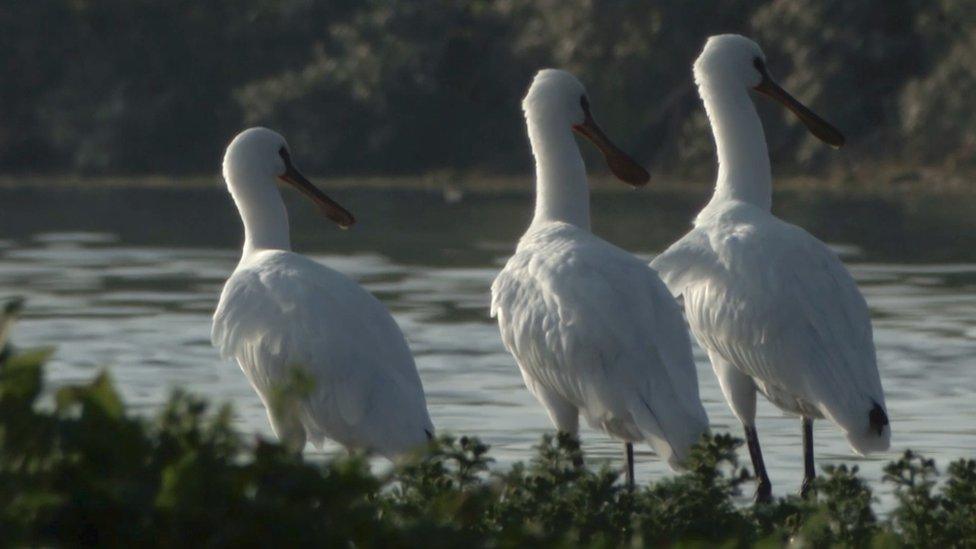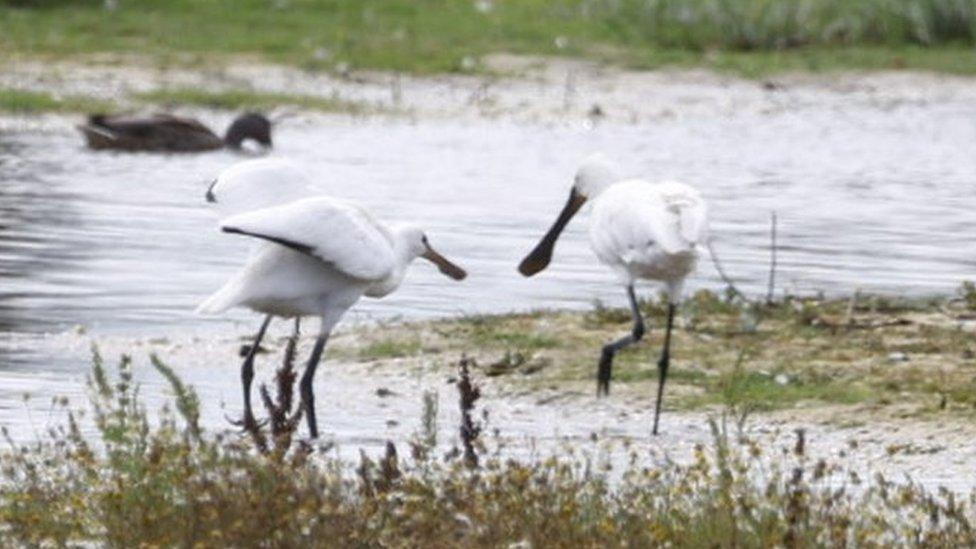Trips to see rare bird at nature reserve sell out

Spoonbills first returned to RSPB Fairburn Ings in 2017
- Published
A rare bird which did not breed in Yorkshire for centuries has thrived since pairs nested at a nature reserve where they have become a star attraction.
Spoonbills first bred at RSPB Fairburn Ings in 2017 and have returned to the site near Castleford each year.
After a promising spring, staff have hopes that this year's tally of chicks could beat the record of 13 fledged juveniles set in 2022.
Climate change and careful management of habitat have helped the spoonbills to spread north from their preferred coastal breeding grounds.
Walks sell out
RSPB conservationists and volunteers have nicknamed the young "teaspoons" and said they were hugely popular with visitors. Guided spoonbill walks have sold out this season.
Fairburn Ings warden Karen Swaffield said: “When our teaspoons hatch with a tiny, soft, pale orange, spoon-shaped bill, and orange legs, it’s such a fantastic sight to see.
“If the last pair, which are currently nest-building, manage to fledge a chick, we will have had a record year, so we are all on tenterhooks to see what happens next.”
There have been nine nests on the reserve so far. Last season, eight chicks were reared by five pairs.
Nine juveniles have already fledged and three pairs are still feeding chicks. More could hatch by the end of the breeding season in August.

There are nine spoonbill nests at RSPB Fairburn Ings
Ms Swaffield added: “Spoonbills are tremendously exciting to have at RSPB Fairburn Ings and early indications are that they have had yet another successful breeding year.
“We’re thrilled the spoonbills have now been here for the eight years in a row, and we really hope this means they are here to stay.”
Spoonbills were common across the UK until the 16th Century, but their population crashed due to drainage of wetlands and hunting.
Fairburn Ings is part of the Aire Valley, an east-west "flyway" across the Pennines for the birds, and the reserve's population have been recorded travelling to another RSPB site, Blacktoft Sands on the Humber Estuary, to feed.
Staff managed water levels at Fairburn Ings to create favourable conditions for the spoonbills to return each spring.
The species did not breed in the UK at all between 1668 and the late 1990s, and since 2010 there has been a regular nesting colony in Norfolk.
Related topics
- Published4 July 2017

- Published8 August 2023
